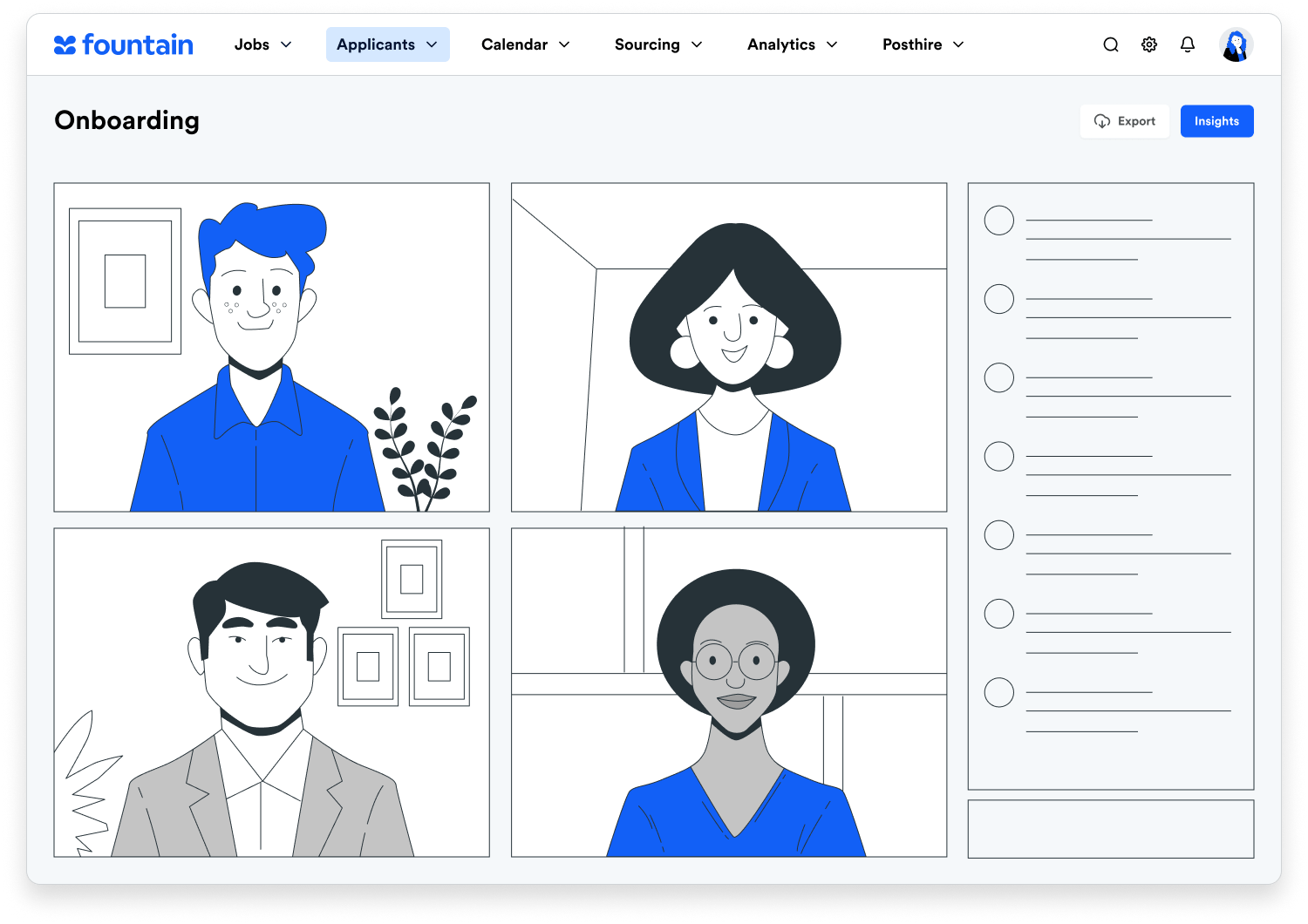One of the biggest business changes brought about by the pandemic is the increase in remote work and how we conduct virtual candidate interviews. In an effort to encourage social distancing and protect candidates and employees, many businesses have embraced a virtual interview process.
However, it’s also usually more difficult to conduct an interview remotely than in-person because of the physical disconnect. This is why many companies, especially those accustomed to the traditional face-to-face interview, may struggle immensely with the virtual hiring process.
In this blog, we’ll discuss best practices for HR professionals regarding how to conduct a thorough and professional virtual interview to ensure you are hiring the best candidate for your team. We’ll also dive into potential challenges during the virtual interview process and how to prevent them, as well as tools and resources you can use to make the most out of your virtual interview.
Do your homework
Virtual interviews can be more convenient for candidates, meaning your talent pool is broadened as the process becomes easier on both sides. It’s even more important to come prepared to a virtual interview to make the most out of your time together.
Make sure you have all relevant questions written down, and that you’ve gone over the necessary qualifications for the job with the applicant via a phone call or email beforehand. Be sure to also email a virtual interview invitation to the candidate at least twenty four to forty eight hours beforehand to give the candidate the chance to familiarize themselves with the chosen software.
In addition, be sure to carefully review the applicant’s resume, work samples, and other provided materials. This is one of the most important steps for hiring any new employee, because it helps you filter out which applicants are worth interviewing in the first place, and it also helps you to determine which specific questions you need to ask during the interview as well.
We also recommend using this time to speak to department heads and others involved in the hiring process and make sure everyone is on the same page regarding necessary qualifications, questions to be answered in the interview and overall characteristics needed for the role.

Always do a trial run
Since the beginning of the coronavirus pandemic, we have seen an increase in television interviews and news reporters streaming virtually while broadcasting remotely. This new practice has come with a litany of incidents of virtual interviews gone wrong on live television. From noise in the background to playful children interrupting interviews, it’s clear that even the most basic elements of a virtual interview can easily get overlooked.
While this may seem like a dramatic example, the simple fact remains that there is more potential for a remote interview from home to go wrong than an in-person interview at a physical office. This is why before you conduct your virtual interview, you should always do a trial run with a colleague to identify and eliminate unexpected interruptions and boost your confidence in the process.
You can conduct this trial interview with a colleague who can take the role of the applicant. Provide them with the applicant’s resume and materials so they can familiarize themselves with the applicant first, and then proceed to ask the same questions you plan to ask.
Anything that needs to be improved upon in terms of the technicalities or your questions can be identified in this trial interview, so that the real interview can go much more smoothly. Make sure you use the exact same software with the trial that you’re planning to utilize for your actual virtual interview as well.
Ensure secure communication
Too many businesses and hiring managers overlook security and privacy when it comes to remote interviews. But this is more important now than ever before as hacking incidents have been on the rise since the pandemic hit.
The strength of your WiFi can vary depending on how many people are using it and whether there are any service outages or IT updates going on. This is why you should always make sure to test your secure internet connection at least an hour prior to your virtual interview, even if you’ve never had issues before.
You should also take action to encrypt all online communication with your applicants. This can be best accomplished by using an internet router that comes with a Virtual Private Network (VPN) installed. It’s also preferable to have a VPN installed on your business’s internet router rather than on your individual devices.
As Brisbane-based cybersecurity expert William Ellis of Privacy Australia explains, businesses should use VPN routers rather than just their devices because “devices that have VPN software installed on them receive encryption protection only on that device. A VPN network router, on the other hand, is able to simultaneously protect multiple devices on the same network. These could be tablets, smartphones, computers, or any computing device. With one connection, a VPN router is able to encrypt all of the devices on the network from one source with just one connection.”
Conclusion
Virtual interviews can be convenient as well as save you money and time. However, there is a certain lack of personal touch that a virtual interview brings. This is all the more reason to set up clear expectations and an open line of communication during the interview process. In other words, prepare yourself by determining which questions you should ask, but also be flexible
Virtual interviews have the capability to transform our work culture as workplaces all around the world move towards digitalization. With a little preparation and experience, conducting a virtual interview can be an effective way to reach a more diverse group of remote candidates and hopefully find the right fit for your team.

 Feb 02 2021
Feb 02 2021
